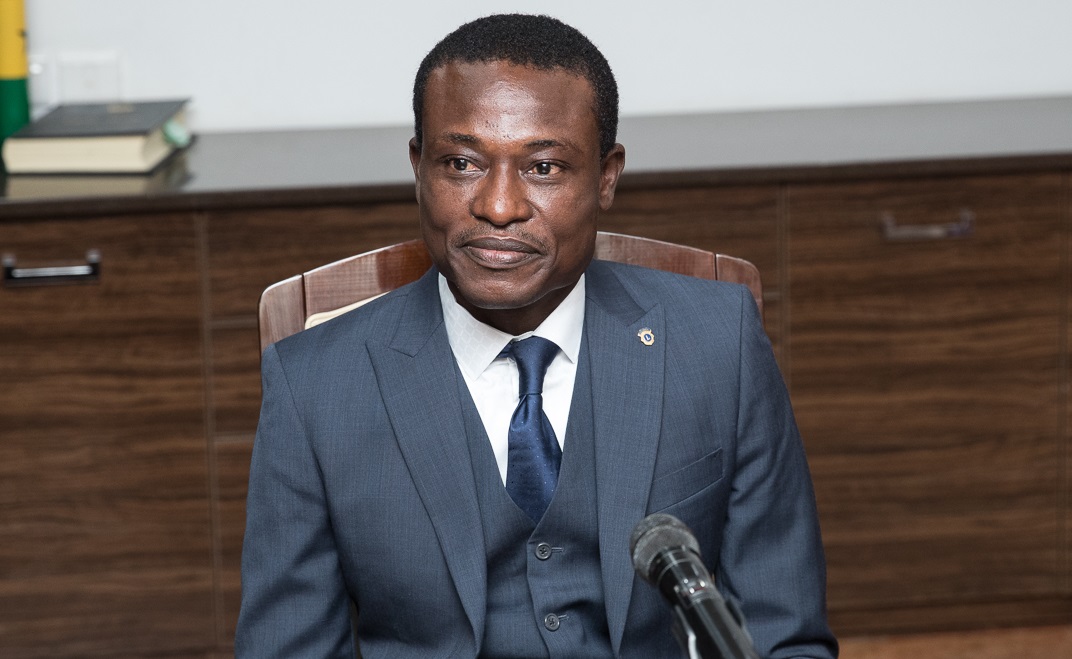The former Special Prosecutor, Martin Amidu, has stated that the Office of the Special Prosecutor (OSP) erred in instructing Labianca to pay GHC 1,074,627.15 as a shortfall in import duties to the State.
According to him, the Special Prosecutor may have some powers but he is not mandated under Act 959 or permitted to instruct for the alleged payment to be effected by Labianca.
“There are no particulars anywhere in the OSP Labianca report published to the court of public opinion demonstrating that the alleged revenue shortfall, if valid, arising out of “the issuance of the unlawful customs advance ruling” by the named witness now turned into a suspect or an accused person is linked to the suspected commission of any corruption and/or corruption related offence to warrant the public lynching of Mr. Joseph Adu Kyei and others in the court of public opinion instead of a trial in the court of law,” Mr. Amidu stated.
He further explained that “the directive of the Special Prosecutor was for the Labianca Company Limited to pay the amount into the Asset Recovery and Preservation Account of the Office of the Special Prosecutor.
“This presupposes that the Special Prosecutor is mandated under Act 959 to make such a directive during the investigation of cases aside from the mandatory way all investigation exhibits in law enforcement investigations are recorded in the station diary, the diary of action on the case docket, and handled through the exhibits register by the investigating officer.
“Act 959 does not mandate the OSP to issue the mandatory directives the Special Prosecutor issued to Labianca to pay the alleged short collection of customs into the OSP’s accounts as will presently be obvious hereunder.”
The mandate of the OSP on Asset Recovery and Preservation
What was the authority or mandate of the OSP for giving the interim directive for the payment of “…an amount of One Million Seventy-Four Thousand Cedis Six Hundred and Twenty-Seven Cedis Fifteen Pesewas (GHC 1,074,627.15), representing the short collection or shortfall of revenue arising from the issuance of the unlawful customs advance ruling …. into the Assets Recovery Account of the Office of the Special Prosecutor”? The amount directed to be paid is neither from the realization of a frozen asset nor a confiscated asset ordered by a court. As an exhibit in an on-going investigation the amount cannot be treated as a recovered asset to be paid into the Asset Recovery and Preservation Account of the OSP under Regulation 24 of L. I. 2374. All seasoned prosecutors know how exhibits are managed and kept pending completion of investigations and prosecution. Exhibits collected during investigations whether interim or final do not fall within Section 77 of Act 959 and Regulation 24 of L. I. 2374 dealing with Asset Recover and Preservation agreements. Regulation 24 of L. I. 2374 for the avoidance of doubt states that:
“Asset recovery and preservation agreement
24. The Special Prosecutor may
(a) in furtherance of section 77 of the Act, liaise with an institution outside the country for the preservation of assets obtained from the commission of corruption or corruption-related offence outside the country; or
(b) where a confiscation order has been made by the Court after conclusion of criminal proceedings and the defendant cannot or will not voluntarily release the assets”
It is pertinent from the foregoing that the only compulsive directive the OSP made for the Labianca payment could not have been under Section 77 of Act 959 and Regulation 24(b) of L. I. 2374. But the OSP Labianca investigation report is not the result of any existing cautioned statement taken from the suspects, let alone a formal charge of each of them, for any trial, conviction of the suspects, and any consequential confiscatory order made by a court of law as required under Regulation 24(b) of L. I. 2374. Indeed, each of the witnesses unlawfully styled as suspects in the report and their lawyers who accompanied them to the OSP for the interviews by the unlawfully constituted investigation panel can testify that no cautioned statement was taken from any of them by the OSP. The persons now named as suspects and guilty in the OSP Labianca report were told they had been invited as witnesses and made only witness statements to the investigation.
Consequently, the compulsive directive given to Labianca Limited, and the payment made pursuant to that directive into the Asset Recovery and Preservation Account of the OSP was unlawful, unconstitutional, and a flagrant abuse of investigative and prosecutorial powers by the Special Prosecutor. The foregoing unlawful and unconstitutional conduct of the OSP renders the Office unfit to continue any fair, impartial, and independent investigation into the Labianca case on grounds of gross investigatory and prosecutorial misconduct. An independent constitutional Commission of Enquiry will be a better vehicle for dealing with any outstanding aspect of the Labianca complaint if justice is to be seen to be done.
Attached is the full statement by Martin Amidu
THE LABIANCA REPORT PUBLISHED BY THE OSP IS HOLLOW, WIHTOUT MANDATE AND UNCONSTITUTIONAL
Source: Ghana/Starrfm.com.gh/103.5FM




